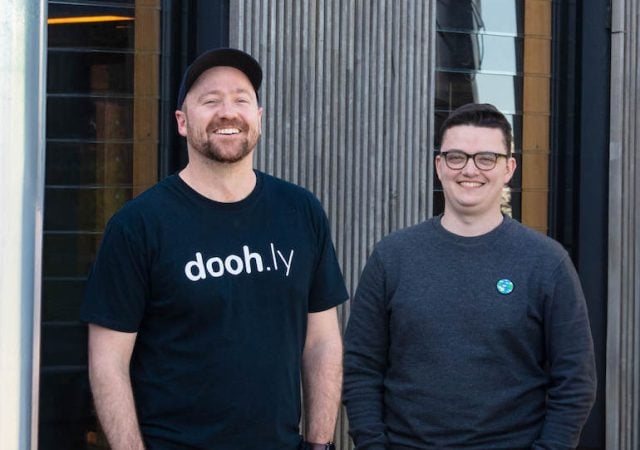Last week, the Federal Government revealed plans to raise qualifications for sophisticated investors. Investors would now need $4.5 million or more in assets, or to earn more than $450,000 for two consecutive years to be able to access certain types of investment opportunities such as venture capital.
Under existing rules, a sophisticated investor qualifies as someone with more than $2.5 million in assets or earning more than $250,000 in two consecutive years with only 16% of Australians currently qualifying for this threshold. The proposed changes represent a hike of 80% and will ringfence the sophisticated investor designation to the top 1% of Australians.
Among VentureCrowd’s 74,000 members, who are set on investing in ventures that make a difference, there are thousands of sophisticated investors. And over the past three years, we have returned over $23 million to our members. These investors come to us because of accessibility and impact. If accessibility to ventures that are making a difference is compromised, we start to see fewer startups that make a real impact on our lives, the business landscape and the economy.
At its core, these changes come from an important place: to protect investors from situations where their financial stability is severely compromised. This is all the more critical in an age of rising inflation and cost of living. But will these changes really protect investors, or just restrict them?
Radical ideas contain inherent risk
Following on from 2023, startup funding in the new year was always going to be a challenge for ambitious Australian entrepreneurs. $5 billion in venture capital flowed into Australian start-ups during the 2023 financial year – already an $11 billion drop from 2022.
With an already challenging funding climate, the proposed qualification changes will hinder ambitious investors from making value-aligned investments and mean a steep decline in early-stage investments that are crucial for startups to prove their concepts and gain traction.
Australia has a world-class, global reputation for innovation, with the country ranking first in the world for having the skills needed to use, adopt and adapt frontier technologies. Consider the likes of Canva, Atlassian, or Afterpay- all revolutionary business concepts born right here in Australia that banked on early-stage investors to trust in their vision and believe in unprecedented ideas.
Undeniably, radical startups that seek to solve a core problem that others are not addressing have inherent risk built into their foundation. And these startups need investors who are willing to take risks on groundbreaking ideas. If these investors have the desire and capital to take a chance on these ideas, why would we look to curtail their ability to be part of something new, exciting and potentially life-changing?
Sophisticated investors are typically high-net-worth individuals or experienced professionals who are savvy and consistently looking for new ways to get the most out of their capital. Investing in startups provides a pathway to diversification and potentially high returns. Allocating a portion of a portfolio to startups introduces an element of dynamism and growth, allowing investors to stay at the forefront of promising nascent industries and fostering a forward-thinking approach to market trends.
Investors deserve to have access to these types of opportunities, as long as the risks are communicated. With a smaller pool of sophisticated investors, innovation will be stifled, with Australia, and potentially the world, seeing less disruption and less progress.
We also need to look at our regulations from an international perspective. The proposed changes would put us out of sync with jurisdictions such as the US and UK, where 4% of the population meets the £100,000 (AUD $193,470) income threshold, and Singapore’s SGD $300,000 (AUD $340,593) income threshold. All countries serve as key partners in the Australian startup ecosystem and hold a wealth of experienced investors who value Australia’s robust regulatory framework.
Crowd validation and startup success
In the context of investments, a pivotal question for every investment committee revolves around assessing the potential market size for a given product or service- namely whether a substantial number of consumers will embrace what a startup offers. This decision becomes notably challenging with a small group, especially concerning novel products or services. It’s difficult to expect a handful of individuals to accurately predict the future buying patterns of millions of potential consumers.
From a mathematical standpoint, making those decisions with a limited sample size is nearly impossible. The efficiency of private capital markets thrives when there’s broader investor participation, particularly when those investors are potential customers. Crowd validation emerges as a key indicator of future startup success, emphasising the importance of diverse perspectives in shaping investment decisions. Raising the sophisticated investor threshold compromises the integrity of this system, challenging the very essence of market dynamism.
Risk of an innovation brain drain
While Australia enjoys a global reputation for advancement, we are struggling to rise the ranks of Global Innovation. A drop in recent years in early-stage funding is one factor, as well as a lack of investment in education and issues with commercialisation, with research struggling for the needed resources to get out of academia and into the marketplace.
Why are we acting to further stifle investment when it is so critically needed throughout the entire innovation ecosystem, and not backing innovators to achieve their full potential?
Additionally, if the local investment environment becomes less favourable for startups, there is a risk that innovative entrepreneurs and startups may seek opportunities in more investor-friendly ecosystems abroad. This could lead to a “brain drain,” where talented individuals and promising startups relocate to countries with more supportive investment climates.
Elevating qualifications for sophisticated investors are driven by the aim to shield them from high-risk situations. It is pivotal to strike a balance that preserves investor protection without stifling their autonomy when investing in high-risk assets that work hard to progress innovation and affect positive change. Policymakers must meticulously weigh potential repercussions and strive to construct a regulatory framework that fosters both innovation and investment within the startup sector, acknowledging investors’ rightful prerogative to choose where they allocate their capital.




















Trending
Daily startup news and insights, delivered to your inbox.